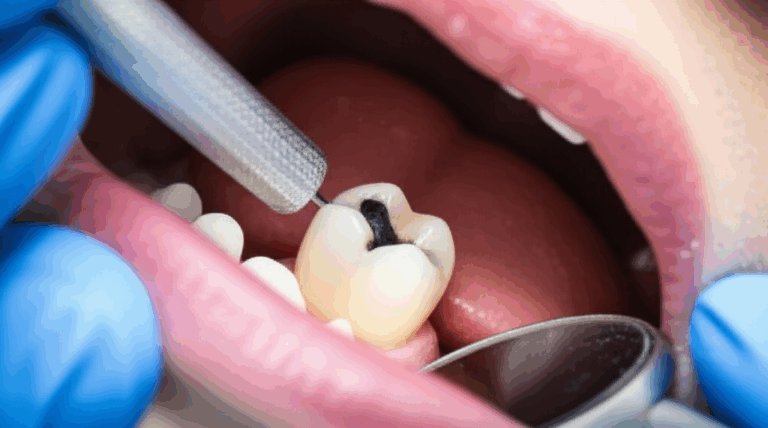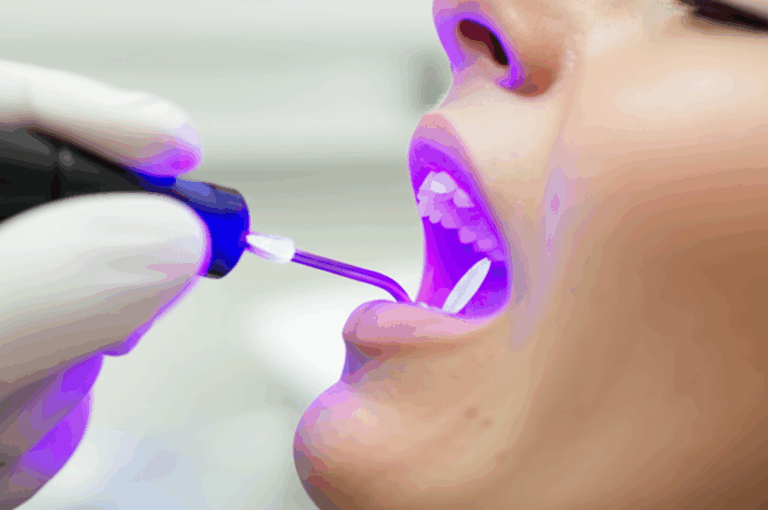
Yes, A Dentist Can Come To Your House: The Compassionate Guide to Mobile Dental Care
Ever wondered, “Can a dentist really come to my house?” You’re not alone. Many people are surprised to learn that mobile dentistry—where a licensed dentist or dental hygienist visits you at home—is not only possible but quickly getting popular. Whether you’re caring for an older parent, have trouble moving around, or just want an easier way to get your teeth cleaned, you’re in the right place.
In this friendly explainer, I’ll show you how at-home dental care works, who can use it, what happens during a visit, how to find these services, what it costs, and answer your quick questions. All in plain language—so you get the info you need for a healthier, happier smile.
In This Article
- What Is Mobile/At-Home Dentistry?
- Who Can Benefit from a Dentist House Call?
- Which Dental Services Can Come to Your Door?
- The Benefits of At-Home Dental Care
- How Does a Home Dental Visit Work?
- Finding a Mobile Dentist Near You
- Costs & Insurance for At-Home Dentistry
- Common Challenges & Considerations
- Quick Answers: Mobile Dentist FAQs
- Your Healthy Takeaway & Next Steps
What Is Mobile/At-Home Dentistry?
Let’s start with the basics. Mobile dentistry—or at-home dental care—means a licensed dentist or hygienist comes to you instead of you going to them. They pack up portable dental tools, like a fold-up chair and even a small X-ray machine, and bring everything needed for a good dental appointment in your living room, bedroom, or even right by your bed in a care home.
Why does this exist? Imagine you’re stuck at home after surgery. Maybe your grandmother can’t use stairs anymore. Even families who are super busy or people living far away from town with no easy way to travel can use this. New tools and big ideas have made dental care much easier, convenient, and a lot less scary for lots of people.
Think of mobile dentistry like a food truck for your teeth. The dentist comes to you, ready to help.
Who Can Benefit from a Dentist House Call?
You might think it’s only for older or very sick people, but mobile dental care works for lots of different people and situations.
1. Elderly & Homebound Patients
- Seniors who can’t move well, have long-term health issues, or live in group homes often have trouble getting to regular dentist visits.
- About 2-3% of U.S. adults—over 5 million people—are homebound, so you’re not alone if travel is too hard.
2. Individuals with Disabilities or Special Needs
- Physical, learning, or thinking problems—like those with Alzheimer’s, stroke, autism, or other disabilities—can make going out to a dentist tough or scary.
- At-home care lets people relax in a spot they know, and dentists can give more personal help.
3. Patients with Dental Anxiety or Fear
- If you get really nervous at the dentist, having them come to you might help. Being at home can make the whole thing feel easier.
4. Busy Families and Professionals
- If you’re running all over with work, kids, and chores, a mobile dentist can come when it fits your schedule—even outside the usual office hours.
5. Patients Recovering from Surgery or Injury
- If you can’t get out for a while, you don’t have to miss your dental check-ups. Dentists can even talk with your regular doctors if needed.
6. People Needing Long-Term or Comfort Care
- For people facing major illness, feeling clean and cared for in your mouth still really matters.
Quick Example:
Carol’s father lives in a care home and is mostly in bed after a stroke. He couldn’t keep up with dentist visits. Once they started mobile visits, his mouth was healthier and he felt better eating regular foods again.
Which Dental Services Can Come to Your Door?
Here’s what can actually happen when the dentist brings the “clinic” to you:
Routine Dental Check-Ups
- Looking for cavities, gum problems, or signs of mouth cancer
- Checking any old crowns, fillings, or dentures
Professional Teeth Cleaning
- Removing plaque and tartar
- Tips for caregivers or patients on brushing and flossing
Fillings & Small Repairs
- Fixing little cavities with portable tools
Simple Tooth Extractions
- Taking out teeth that are damaged, loose, or hurting
Denture Services
- Adjustments, fixed repairs, or getting new molds for dentures
- Evaluation for new dentures made by a removable denture lab
Emergency Dental Care
- Help for pain (temporary fillings, draining infection, antibiotics)
- Fixing loose teeth or repairing broken dental work
Preventive Treatments
- Putting on fluoride
- Dental sealants for kids or anyone at risk
Dental X-rays (Radiographs)
- Using a small, digital X-ray machine set up right at home
Consultation & Treatment Planning
- Talk about future dental needs
- Referrals for bigger jobs if needed
What can’t be done at home?
Some things just need bigger equipment or a special office:
- Major tooth surgeries
- Complicated root canals
- Braces or clear aligners (though you can still get an opinion)
- Full smile makeovers (these usually start in a dentist’s office)
Fun fact:
With new dental tech and 3D printing, dentists can work with labs to make sure your new dentures or crowns fit well, sometimes without even going to the clinic.
The Benefits of At-Home Dental Care
Getting your dentist to come to your living room isn’t just a cool new trend. For many people, it’s a real shortcut to better health.
1. Convenience
No more waiting rooms or long car rides. You save time—the average person saves 2–4 hours per appointment, based on what mobile dentists say.
2. Accessibility
You don’t need a ride. If you live in the country or don’t have a car, the dentist comes to you.
3. Comfort and Less Stress
Home is where you feel relaxed. Being at home is easier for nervous patients, kids, or those with autism.
4. More Personal Care
You get all the dentist’s attention. They can even team up with family or caregivers if you need help.
5. Stay on Track with Your Care
Regular house calls—great for older people, or those who have trouble leaving home—mean you’re less likely to miss appointments.
6. Better Health Overall
Bad teeth or gums can make problems like heart disease worse, especially for older people. Regular cleanings matter—at home or at a regular office.
How Does a Home Dental Visit Work?
Let’s walk through what usually happens, so you know what to expect.
Step 1: Booking & Talking with the Dentist
First, find a good mobile dentist. (I’ll show you more below.) You’ll tell them about your health, explain what you need, and set up a time.
Step 2: Getting Your Room Ready
You don’t have to turn your house into a dentist office! Just a clean, quiet room with some space and maybe a plug for their tools is good enough. The dentist brings everything else—including their own chair and lamp.
Step 3: The Dentist Arrives & Sets Up
On your appointment day, the dentist or hygienist shows up with all their stuff—think carry-on bags but for teeth. They’ll set up, put on gloves and a mask, and make sure you’re comfy.
Step 4: The Appointment
- The dentist looks at your mouth, listens to your problems, and does what you agreed—maybe a cleaning, filling, or taking out a tooth.
- If you need X-rays, they’ll use a small digital camera and even show you the pictures right there.
- Need a new denture or crown? The dentist can take a mold and work with a china dental lab or another special crown and bridge lab.
Step 5: Clean-Up & Aftercare
All waste is packed up safely, just how they would in a regular office. The team will leave your space like they found it—except maybe for a little minty smell from the cleaning! You’ll get tips for what to do next and help with setting up your next visit or getting a referral if needed.
Step 6: Follow-Up
If you need your new denture fixed or a reminder for your next cleaning, the mobile dentist handles it—sometimes with a phone or video chat if needed.
Finding a Mobile Dentist Near You
Ready to try a home dental visit? Finding a trusted dentist is easier than you think.
Where to Look
- Online: Try searching “mobile dentist near me” or “home dental care [your city].”
- Professional Groups: The American Dental Association (ADA) or your state’s dental website often lists mobile dentists.
- Home Health Services: Nurses, therapists, and helpers may work with dental teams and can give you names.
- Senior Centers: Places that help older adults, like retirement homes, often have lists.
- Family Doctors: Your doctor may know good local dentists who go to homes.
Picking the Right Dentist
Keep this in mind:
- Are they licensed and allowed to work in your state?
- Do they do the treatments you need?
- Do they follow good cleaning and safety rules (super important with portable tools)?
- Can they work with your insurance?
- Do they team up with trusted dental labs—like a zirconia lab or night guard lab—for special dental work?
- Check reviews or ask about their experience with people like you.
Costs & Insurance for At-Home Dentistry
What Does It Cost?
You might think a dentist coming to you costs a fortune, but for simple care, prices are often close to regular office fees, plus a little extra for travel and time (about $50–$150 more per visit, but it changes place to place).
Big treatments, emergencies, or late-night visits could cost more.
Will Insurance Help?
- Private insurance: A lot of plans cover mobile dentists, especially if you need it for medical reasons.
- Sometimes it’s “out of network,” so always check your plan.
- Medicare & Medicaid: In some states, Medicaid or Medicare covers home dental visits for certain people (like seniors, people with disabilities, or those who can’t leave home).
- Veterans Benefits: Sometimes veterans can get mobile dental care through their VA benefits.
- Other payment plans: Many mobile dentists offer payment plans, discounts, or charge based on what you can pay.
Pro tip:
Get a price quote up front and double-check with your insurance. Ask if there’s a simple direct-pay option—sometimes paying in cash can save money, especially for basic cleaning.
Common Challenges & Considerations
Mobile dentistry helps lots of people, but it’s not perfect for everything.
What Can’t Be Done
Not all dental stuff can happen in your home.
- Major oral surgery
- Some root canals or braces
- Special X-rays or scans might need a real office
Equipment
The portable stuff is great, but sometimes you need the big machines.
Cost
The easy visits are usually not too pricey, but if you need the dentist fast or need something special, the price might go up.
Availability
Mobile dentists are becoming more common, but not every area has plenty yet. Cities and suburbs have more options, but country areas might not have as many.
Cleanliness
Any dentist—at home or in an office—should keep things super clean. Don’t be afraid to ask how they clean their tools.
Quick Answers: Mobile Dentist FAQs
Can a dentist pull a tooth at home?
Yes, if it’s not too complicated. Mobile dentists often do easy extractions.
Can I get a crown fitted at home?
The dentist can start the process and do a lot at home, but sometimes you’ll need a final check at a clinic if it’s tricky. Many mobile dentists work with good emax dental lab and digital tools for the best fit.
Are at-home visits safe?
Yes, if you pick a reliable dentist. They’ll use the same safe and clean habits as regular offices.
Do they see kids or people with autism?
For sure! In fact, being at home can be much easier for kids or anyone who doesn’t like new places.
Is mobile dentistry only for emergencies or seniors?
No. Anyone—busy families, professionals, people in rural spots—can ask for this kind of care.
Your Healthy Takeaway & Next Steps
Here’s a quick cheat-sheet:
What You Learned:
- Yes, dentists can come to your house for check-ups, cleanings, fillings, extractions, denture help, and more.
- At-home care is great for seniors, people with disabilities, those with dental fear, busy families, and folks stuck at home after surgery or sickness.
- Most regular and small emergency dental work is possible with portable gear.
- Mobile dentistry means more convenience, easier access, and often better health for lots of people.
- Prices and insurance are tricky, so always ask first and look at your options.
Next Steps:
A better, more confident smile should be easy to get, whether you visit your regular dentist or get care brought to your door.
Don’t let trouble moving, fear, or a busy life keep you or someone you care about from healthy teeth and gums. Explore your mobile dental options now—take the first step to a healthier smile, right where you are.
For more on getting dentures made just for you, or how digital tools are changing dental care, check out our guides to working with a dental lab for retainers or exploring the world of digital dental lab technology for care at a whole new level.
Want more easy oral health tips? Keep reading our other helpful guides—you’re already on your way to a happier, healthier smile!








